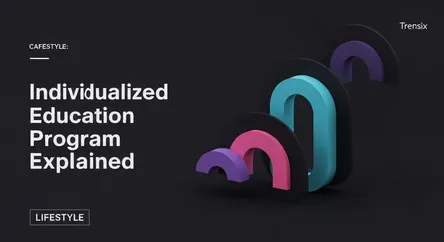Lifestyle
Individualized Education Program Explained

Discover the Individualized Education Program (IEP), a legal document designed to ensure students with disabilities receive specialized instruction.
What is it?
An Individualized Education Program (IEP) is a legally binding document in the United States, mandated by the Individuals with Disabilities Education Act (IDEA). It is developed for each public school student who requires special education services. Created by a team including the child's parents, teachers, and specialists, an IEP outlines specific educational goals and the support services the school will provide. This can include specialized instruction, related services like speech therapy, and accommodations to help the student access the general education curriculum.
Why is it trending?
There is a growing global conversation around inclusive education and neurodiversity. As awareness of learning differences like ADHD, dyslexia, and autism increases, more parents and educators are seeking formal support structures. The IEP is trending as a key tool for personalizing education, moving away from a one-size-fits-all model. The focus on student-centered learning and ensuring equitable access to education has brought the importance of plans like the IEP to the forefront of educational discussions online and in schools.
How does it affect people?
For students, an IEP provides a tailored pathway to success, ensuring they receive the specific tools and support needed to meet their unique challenges. It legally entitles them to accommodations that level the playing field. For parents, it gives them a formal voice and a collaborative role in their child's education, empowering them to advocate for necessary resources. For educators, it offers a clear, structured plan to guide instruction and measure progress, fostering a more effective and supportive learning environment for the student.